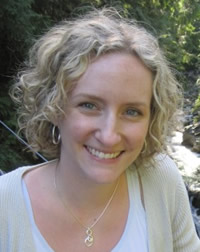Find a CBT Therapist
Search through our directory of local clinicians.
Amy Brausch

Mentor Spotlight
Amy Brausch is an Associate Professor in the Department of Psychological Sciences at Western Kentucky University where she has been a faculty member since 2011. She received her Ph.D. in Clinical Psychology from Northern Illinois University in 2008 after completing her internship at the Utah State University Counseling and Psychological Services Center. Her first faculty position was in the Department of Psychology at Eastern Illinois University from 2008-2011. At WKU, Dr. Brausch mentors students in the psychological sciences master’s program, as well as undergraduate psychological science majors working in her research lab.
Dr. Brausch’s research program focuses on issues of suicide and self-injury in young adults and adolescents. She has published numerous articles and book chapters related to suicide and self-injury in this age group, as well as the overlap between self-harm and issues of body image and disordered eating. She is currently a Senior Consultant with CAMS-Care and provides training and consultation to clinicians across the United States in the Collaborative Assessment and Management of Suicidality treatment framework. Dr. Brausch is currently involved with research projects that utilize CAMS with adolescents, and two NIMH-funded studies: one that evaluates the role of emotion dysregulation in the development of self-injury and suicide behaviors in adolescents, and one examining how features of self-injury facilitate the progression to suicide thoughts and behaviors in young adults. Dr. Brausch has been recognized for her research efforts, receiving the WKU University Research Award in 2017 and the WKU College of Science & Engineering Junior Faculty Research Award in 2015.
1. For how long have you been a member of ABCT?
I believe I have been a member for fifteen years.
2. What type of mentor do you aspire to be? Do you have a mentorship philosophy?
I think the best way to capture my mentorship philosophy is in a motto to which I subscribe: “you work hard for me and I work hard for you.” I aspire to be really supportive and encouraging, but also challenge my trainees to try new things and step out of their comfort zone. I also attempt to help students get comfortable with setbacks, such as not getting grants and awards, and to view initial failures as part of the process. In a similar light, I try to help students become comfortable with receiving feedback. As an example, I work exclusively with undergraduates and masters-level students and assist them as they decide to pursue doctoral training or enter the workforce. In these discussions, I try to offer unconditional positive regard as much as possible, but I do not sugar-coat things, because I want them to be prepared and realistic expectations.
3. What practices do you engage in that foster your mentorship style?
A few of the things I do regularly are schedule regular meetings, monitor each student’s goals, which vary depending on their professional goals, provide support/cheerleading as needed, try to assess which strategies work best for each student and tailor my approach accordingly, and connect students to opportunities that are a good fit for their goal.
4. What are your strengths as a mentor?
I am an efficient and organized person and believe that I read students well, which allows me to deliver feedback or intervene at effective times. I also attempt to demonstrate a calm and optimistic presence as well as model work/family balance.
5. Whom do you perceive to be your most influential mentors? Describe the main lessons that you have learned from your mentors.
I have a few that come to mind. For my undergraduate training, I think of Dr. Bill O’Brien at Bowling Green State University. I first interacted with him because I wanted research experience. Not many faculty worked with undergraduates, but he was willing to do so. I was the only undergraduate in his lab, and I did a master’s thesis with him. He was an excellent model of work/family balance and balancing various responsibilities. For my doctoral training, I found Dr. Pete Gutierrez at Northern Illinois University. He taught me to not be afraid to push myself, because opportunities are everywhere. On the other hand, he also taught me to choose to be involved in what matters most to me. He was also another model of self-care, and promoted the importance of remaining healthy and active, two things that are important to me.
6. What do you tend to look for in potential mentees?
I am looking for a certain level of maturity to know they are ready to work hard, are eager to learn, and are enthusiastic about pursuing their goals. Another characteristic that is important is that they have some idea of what their career aspirations are, because once they have that I can develop a plan to help them meet that goal. I look for trainees that are not afraid to branch out (e.g, move). Lastly, they must care about suicide prevention and be passionate about that so they will be a good fit in the lab.
7. What advice would you give to other professionals in your field who are starting out as mentors?
I find it is important to determine several things about themselves, such as are they hands off/hands on; do they like mentoring; how available do they want to be; and how can they be available but maintain boundaries. Another area to consider, which is similar to clinical work, is that a mentor-mentee relationship is not really a two-way street. Mentors must be present with mentees but not overly sharing of their personal problems. I see a mentor-mentee relationship as mutually beneficial but not equitable.
8. What do you enjoy doing for fun/relaxation?
I really enjoy reading for pleasure, exercise, and spending time with my family.
